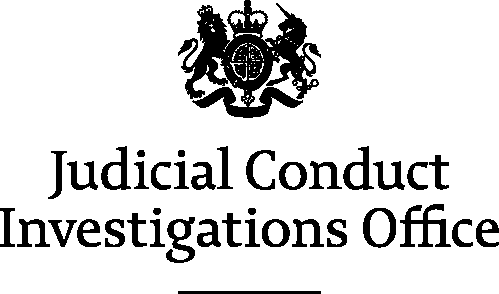




JCIO 118/24
Date: 28 March 2025
A spokesperson for the Judicial Conduct Investigations Office said:
The Senior President of Tribunals, acting on behalf of the Lady Chief Justice and with the Lord Chancellor’s agreement, has issued Employment Judge Richard Nicolle with formal advice for misconduct.
Facts
Judicial office-holders are required to be courteous, tolerant and respect the dignity of all. They should also ensure that their conduct maintains and enhances confidence in their personal impartiality and that of the judiciary.
A litigant-in-person complained that they had overheard Judge Nicolle making comments to non-legal tribunal members which called into question his impartiality. Specifically, it was alleged that he had told the non-legal members that they were there to make the complainant “feel satisfied”, that the complainant would appeal the decision in the case if it went against him, and that the complainant had made “outrageous” allegations about another judge.
Judge Nicolle’s Representations Judge
Nicolle acknowledged that he had made the comments whilst briefing the two lay members. However, he said they had been presented out of context by the complainant. The hearing in question was a case management hearing. Such a hearing would not usually be heard by a full panel, consisting of a judge and two non-legal members. At the complainant's request, he had exercised his discretion to constitute a panel including two lay members. This, he contended, was to provide reassurance to the complainant.
Judge Nicolle added that after the complainant raised concerns about his comments, at the end of the next hearing day, he and the panel recused themselves to guard against any perception of bias.
Nominated Judge’s Findings
Following an investigation under the Judicial Conduct Rules 2023, a nominated judge found that the first two comments did not amount to misconduct. This was on the basis that the first comment, that the non-legal members were there to make the complainant “feel satisfied”, was part of his explanation as to why they were sitting on a case management hearing.
The nominated judge found that the comment about the complainant appealing did not amount to misconduct because it was a prediction of what would happen if the case was unsuccessful.
The nominated judge found that the final comment, about the complainant’s allegations against another judge, did amount to misconduct. This was an unnecessary expression of the judge’s opinion and could have clouded the non-legal members’ view of the case.
Decision
The Senior President of Tribunals and the Lord Chancellor took the view that Judge Nicolle’s comment to the lay members that they were there to make the complainant “feel satisfied” clearly did amount to misconduct on the basis that it was liable to give the lay members the impression that they had no role to play in the proceedings.
The Senior President of Tribunals and the Lord Chancellor were not persuaded that Judge Nicolle’s other comments amounted to misconduct.
Whilst disagreeing in part with the reasoning of the nominated judge, the Senior President of Tribunals and the Lord Chancellor agreed with his conclusion that this was a case of misconduct, and also with his recommendation that the appropriate sanction was to issue Judge Nicolle with formal advice. In reaching this conclusion, they took into account the judge’s previously unblemished record.
Media queries in relation to the JCIO should be made in the first instance to the Judicial Press Office - telephone 020 7073 4852 or via email - press.enquiries@judiciary.gsi.gov.uk
Sanctions for misconduct by judicial office-holders are set out in the Constitutional Reform Act 2005. They are, in order of severity: formal advice, formal warning, reprimand and removal from office.
For more information about the Office, including details on how to make a complaint against a judicial office holder, you can visit the JCIO website at: Judicial Conduct Investigations website